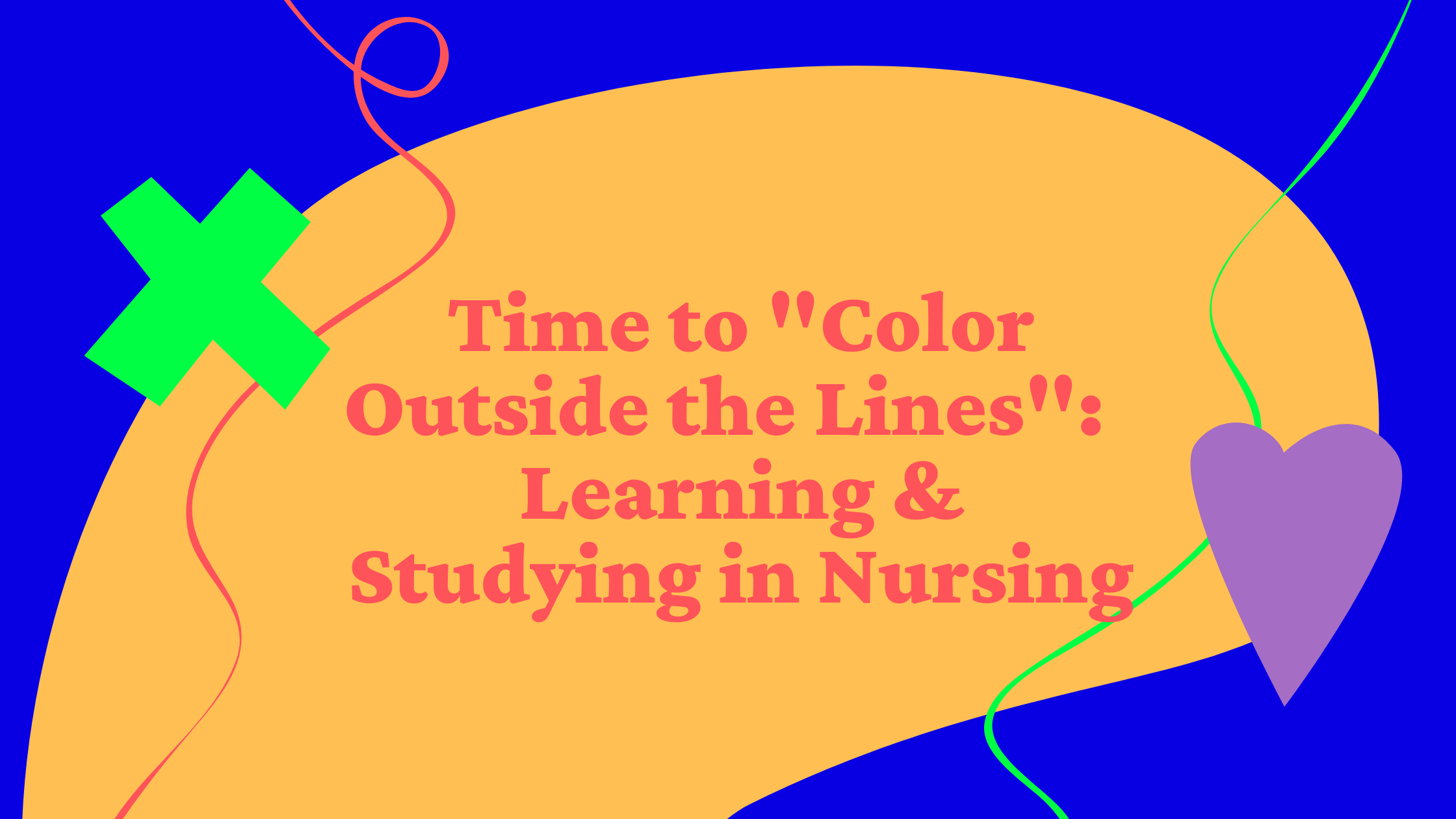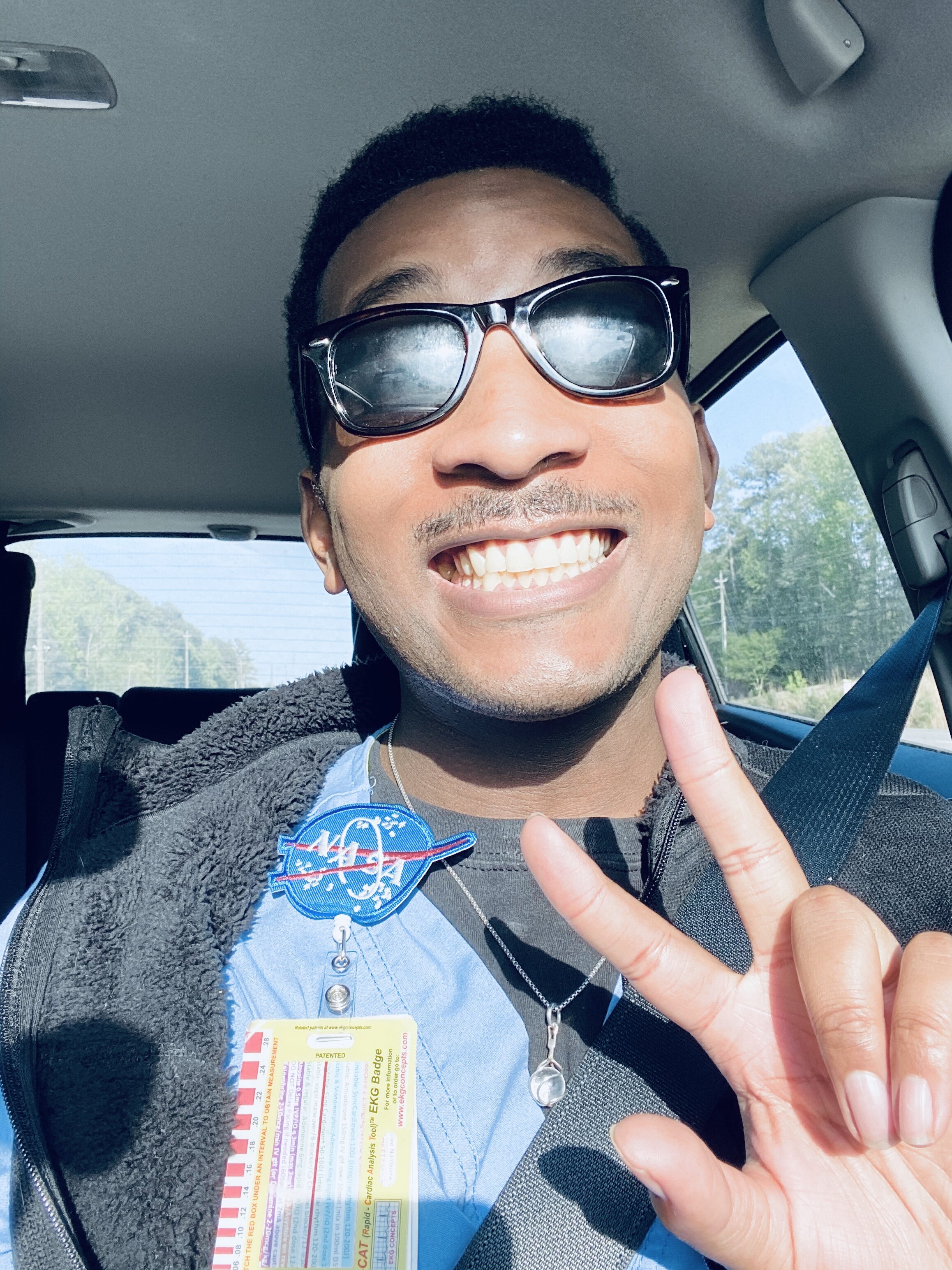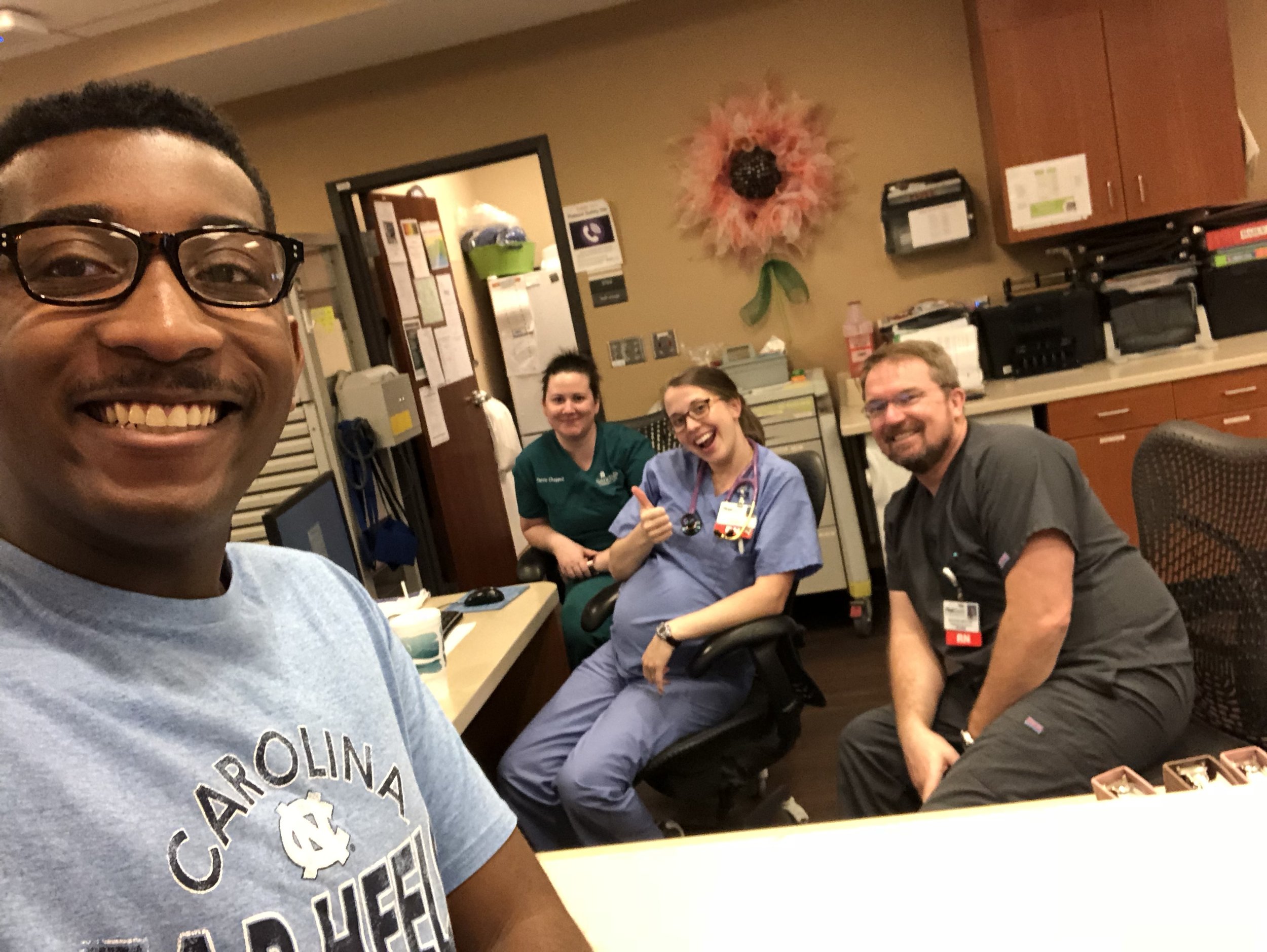NUR 117 Nursing Pharmacology Resource and Tip Sheet
As many of you may know, for the past 2 years I’ve taught pharmacology to new LPN and RN students the community college where I attended nursing school. What’s more, I teach this class online and asynchronously…. and it was kind of scary at first, I’m not going to lie….
Since my first time teaching, my poor first students (lol), I matured and evolved as a new Nurse Educator. I want to prepare my students and even other nurses to maximize and grow their pharmacological knowledge. This post is the byproduct of a list of resources and tips I was gathering for the students in my NUR 117: Nursing Pharmacology course this year. I hope it can be useful to those of you who are in school in other places or are in practice.
Pharmacology is, without a doubt, one of the most challenging topics for many nursing students. Pharmacology, in many ways, is essentially an applied form of chemistry. Via pharmacology, nurses facilitate biochemical reactions to try to invoke a desired effect. So these are a few reliable and reputable resources that I’ve gathered over the years. Among these resources are websites, apps, and more that I’ve either used personally or found useful for my students and colleagues. I hope these resources are helpful to you all, many of them are free or not expensive. These resources help nurses and nursing students to be the scientist that I believe we all are. I intend to make this a living document/post that can/will be updated.
Disclaimer Note: This post/document is NOT to be used in place of resources provided by your school or your place of employment. This content should NOT be misconstrued or used in place of medical or nursing advice by your healthcare team.
Websites and Blogs and Podcasts:
PicMonic Pharmacological Nursing
Also comes as an APP and a Youtube Channel Here
Has info on nursing and medicine, outside of just pharmacology.
Rosalind Franklin University College of Pharmacy Podcast: HelixTalk
Also an App.
GoodRx isn’t just about medication education, although you can certainly find that there. However, it’s an excellent resource for your future patients to save money on their prescription medications, whether they have insurance or not. It’s completely FREE! I have personally used it and saved a significant amount of money on prescriptions.
For the sake of transparency, I have been using GoodRx for a few years now. Last year, I entered a paid writing contract with GoodRx for their blog for healthcare professionals. One such article I’ve written is here. This is NOT an ad by any means, but I’ve personally found them helpful, even before writing for them.
Medline Plus by the National Library of Medicine: Health Information in Multiple Languages
Giving your patients medication and health information in the language, they learn best is a practice that all healthcare workers should have. NEVER make your patient feel like preferring to learn in a language other than your area’s primary language is a burden.
However, even when written in their preferred language, patients can still benefit from having a reputable and reliable interpreter to optimally help them under the information and give them the chance to ask questions and have a conversation about a medication or their health. Never be satisfied with just handing a piece of paper to your patients and leaving it there. Patients who speak a foreign language are worthy of the time it takes to secure a qualified interpreter and allow them to ask questions.
This is also the case with persons who may be deaf/hard of hearing and those who may be Blind/have limited vision. Here is a resource form to help ensure we are making sure these individuals get the information and services they need. Here is another; both are from the American Council for the Blind.
Here is another resource that provides ASL (American Sign Language) videos on Medication Administration, from VUCA Health.
Here’s an Article from Lippincott’s Nursing Center: Communicating with Patients who are deaf.
This is a great general resource for nurses and nursing students seeking to be successful. The nurse behind the course is Sharrica Miller, Ph.D., RN is an assistant professor of nursing, pediatric nurse practitioner, and entrepreneur. She offers several helpful resources that focus on enhancing your nursing career at various stages, for reasonable fees. I know Dr. Miller, and I've personally enrolled in one of her courses in my nursing journey through grad school and found it extremely helpful. Dr. Miller also offers mentorship services.
Her social media content can be found on Instagram: @starternurseacademy
This a great paid resource that offers help with everything from answering NCLEX style questions to mentorship to help launch your nursing career.
The nurse behind New Nurse Academy, Tiffany, has become a personal friend of mine and mentor, as she is a clinical nurse educator. Tiffany holds a Master of Science in Nursing, focusing on nursing education, and she is also a board-certified pediatric nurse (CPN).
Her social media platforms include Instagram: @newnurseacademy
Nurse Nacole is just all-around great. She is hilarious, and she provides a wealth of resources on various nursing topics on her website and social media! I had the pleasure of meeting her the last time I was in Florida (where she lives). She is also a fellow ADN Nursing grad!
Nacole Riccaboni is a dual- board-certified Adult-Gerontological Acute Care Nurse Practitioner and Family Nursing Practitioner (AGACNP & FNP). She is also a board-certified critical care nurse (CCRN). She holds a Master of Science in Nursing degree and is currently a doctoral student pursuing a Doctor of Nursing Practice (DNP). She works as an ICU Nurse Practitioner in Florida.
Her primary social media is via Instagram: @nursenacole.
Khan Academy also has an APP, and it is still FREE to my knowledge. It is an excellent resource for audio or visual learners. They provide help reviews and short lectures on nearly any subject from various types of math to the multiple types of sciences and even the humanities and arts.
This is a great site to refresh your A&P knowledge or pathophysiology when discussing medications for particular body systems. It is helpful in many other ways too. Check out the site and the app.
YouTube has a wealth of videos that can help support you in forming your pharmacological knowledge.
One Channel that many students seem to find help are:
Has a website here and some free and paid resources that cover a variety of nursing topics, not merely pharmacology.
The guy behind the site, Mike Linares, is an RN and has a Master of Science in Nursing (MSN) focusing on nursing education.
Has a website here and some free and paid resources that cover a variety of nursing topics, not merely pharmacology.
Formerly known as NRSNG. The creator, Jon, is a board-certified critical care nurse (CCRN).
I’ve gotten to know the nurse behind FreshR, Katie Kleber, personally, and she has some pretty great information about a variety of nursing topics.
Katie Kleber is a board-certified critical care nurse (CCRN-K) and has a Master of Science in Nursing (MSN), focusing on Nursing Education.
FreshRN also has a website/blog here, as well as a podcast here.
Transparency I am an affiliate for her video courses for nurses, meaning that I get a percentage of the cost for a new video course purchased via a link embedded into my social and such. However, I have found Katie’s content to be spot on and useful, even personally.
Apps:
This is a website I’ve used since nursing school and almost weekly in practice as an RN in various settings. It is a website, but also an app. Getting an account is FREE.
You can quickly and easily look up information about medications, disease processes, surgical procedures, and the latest in health science research and evidence-based practice.
It even has various calculators, drug pricing information, and a basic drug interaction checker.
After you are a licensed healthcare professional (not just nursing), you can even get some of your mandatory continuing education units/hours (CEUs) for license renewal or certification maintenance from this site by reading an article and completing quizzes. The app and website keep track of all of these activities that you do within Medscape.
Also a website.
The award-winning Photomath app makes math easy to understand and master. It utilizes your smartphone camera to capture mathematical problems and help you solve them, step-by-step.
This app is great for my fellow math-phobic folks. You can snap a pic of a math problem, and it will walk you through the steps to solve it, step by step.
Some may feel like this app just gives answers, but it does so much more than that if it is used correctly. It helps students understand how to come to a correct answer to answer problems, without the aid of the app in the future. This requires the student to have the motivation or guidance (particularly with children and parents who might use this app) to use it as tools for learning and not just getting easy answers. After all, one wouldn’t (shouldn’t) be able to use the app on exams, so using it to learn how to solve problems for yourself is critical.
A bit like PhotoMath, but it’s a bit more comprehensive and helps with more than just math.
Using text and speech recognition, the app surfaces the most relevant learning resources for you. Loved by teachers and students.
This app uses the camera technology on your phone to help you gather resources and visualize them, including how to solve problems and give you step-by-step aid to learn how to address these problems in the future.
NOTE: If you don’t use this app to help you learn how to solve problems vs. just giving you an answer, it will not help you. This should be a resource to help yourself learn the in-between.
Works with various subjects in math, science, and the humanities. It’s FREE!!!
This is free, yes, FREE, scientific calculator that can be downloaded as an app!
Books:
Medical-Surgical Nursing Demystified, Third Edition by Jim Keogh, DNP, RN
This book saved my life throughout all of nursing school!
Straight A’s Nursing Pharmacology
This book is a little older, but it still has great info. My friend and board-certified critical care (CCRN) Ernesto (@heynewnurse on IG) introduced me to this gem. The visual presentation is what makes this book so great. All of the info is presented in a way that isn’t overwhelming or too wordy. It is usually cheaper when you buy it used.
Personal Tips & Facts:
Most nurses never (or at least shouldn’t) stop learning and improving their pharmacological knowledge. You will not be even close to being an expert in nursing pharmacology by the end of your pharmacology course, nursing school, or in the first few years as a practicing nurse. Pharmacology is an ongoing learning process, as are most things in nursing.
You will develop and hone your knowledge as you continue throughout school and practice. Learning it all in 1 semester is impossible. Your pharmacology course is meant to give you a comprehensive base understanding from which you continue to grow and develop your knowledge.
Learning drugs by class/category down is the optimal way to learn and maximize your pharmacology knowledge, in most cases. This means before I focus on the specifics of one drug, for example, metoprolol (categorized as a beta-blocker), I want to have a grasp of how beta-blockers work in a general sense. This understanding of commonalities amongst drug classes will enable you to identify drugs of this type, how they are used, and what specific actions and knowledge nurses need to work with these medications and keep themselves and patients safe.
A missing piece in many pharmacology courses in nursing education curriculums, both at the undergraduate and graduate,e is the social determinants of health (SDoH) on nurses’ use and pharmacology knowledge.
SDoH is defined as “Social determinants of health are conditions in the environments in which people are born, live, learn, work, play, worship, and age that affect a wide range of health, functioning, and quality-of-life outcomes and risks. Conditions (e.g., social, economic, and physical) in these various environments and settings (e.g., school, church, workplace, and neighborhood) have been referred to as “place.”5 In addition to the more material attributes of “place,” the patterns of social engagement and sense of security and well-being are also affected by where people live. Resources that enhance the quality of life can have a significant influence on population health outcomes.” by Healthy People 2020.
Understanding how our patients ’ lived experiences and life situations impact how we use pharmacology or their access to information and medications is VITAL if we are to address issues with health equity in nursing. Here is a link that discusses this idea of SDoH and pharmacology.
When administering medications, always always always take the opportunity to educate your patients and their families about them. Tailor your teaching to the needs and abilities of your patients and their families. Even something as simple as “this is Cardizem, and this medication helps control your heart rate” can empower patients with knowledge.
When going into a new rotation or job or specialty, google or ask someone what the top 5 or 10 drugs are for that unit/specialty/patient population and look up those drugs and create note cards or concept maps for those drugs or their drug class. This can help you start on a good note and develop some baseline knowledge.
How to acknowledge you aren’t familiar with a drug to patients and colleagues and what to do about it. Note: Humility, particularly, in this case, is a valuable attribute and can save lives. Also, some other phrases for questions patients ask, or things they say.
Review drugs, wherever possible, beforehand so that you can look them up.
“I haven’t come across the medication much in my practice, so I’ll have to look up some information to be sure I have the best understanding.”
“Tell me what you know about this drug/medication. I am not very familiar with this particular medication.”
In situations where another person more well-versed in the medication/therapy is available and willing to help, you can say, “Let me defer to my colleague {Insert name or title} so that we can all learn more about this medication together.”
When a patient asks, “Why am I taking this medication” and the medication is being used for an off-label reason, or you aren’t sure.
“Many medications are known to treat specific issues. However, some medications can be used to treat multiple things outside of the drug’s conditions, mainly used to treat.”
“Let me research the answer to this for you so that I can clearly explain it.”
“I will talk with our pharmacist or healthcare provider and see if they can help explain the reason why this drug/medication was selected.”
When the patient asks, “why am I on so many medications?”
Note: Polypharmacy, the simultaneous use of many drugs, according to the Oxford Dictionary, is often a real problem in healthcare. Polypharmacy may be more likely to occur in patients who have multiple chronic illnesses and in older adults. Polypharmacy can cause unnecessary issues and drug interactions that can significantly impact patients. Use your nursing assessment and judgment to assess whether this is an issue that needs to be addressed with the healthcare team or the patient’s primary care provider.
“Maybe we can plan to have a conversation with the healthcare team or your primary care provider about your medications and if some medication can be eliminated.”
“There could be several reasons for that; if you like, I can help you make a list of your medications and some questions you may have about them to discuss with your family and your healthcare provider/team.”
“Some situations and treatments require the combination of a number of different medications to effectively treat an illness, symptom, or produce the desired effect. Can you explain if there are any concerns you have about this so that we can discuss it with you and the team?”
When a patient says (in an inpatient or acute care setting mainly), “That’s not how I take {Insert medication} at home?” or “I don’t take that medication.”
First, understand that the patient is an expert about their home routine. Belief them and validate their concerns. Don’t minimize their hesitancy to take new medications, but seek to understand their why behind their reluctance or questioning. They have the right to have a thorough understanding of what will happen to their body, whether that’s via medications or procedures. Always educate your patients and help them understand within your scope of practice. When they need education beyond your knowledge-base or scope, advocate for the appropriate education and educator, if possible, be present to help patients understand what is said, if needed.
Some patients may have a deep distrust of medical professionals for various reasons. Do not take this personal, but rather remember that past experiences could have impacted them significantly. Make your patient feel as comfortable as possible within reason. Don’t center your emotions or beliefs about how they should feel about your care at this moment when you are educating them.
Note: If you (as a nurse or student) are ever uncomfortable educating a patient on something (for various reasons), speak with a team member or leader or mentor in your department or life (faculty, educator, charge nurse, manager, etc..). Explain yourself to the best of your ability (but also remember that you have a right to privacy as well). Of course, always protect HIPAA accordingly.
“Sometimes, in the hospital (Or ER/Urgent Care/Other Acute care location), the provider (physician, PA, NP, etc..) may find it necessary to temporarily alter your medications or the way you take them to treat you safely or effectively. When you are discharged, they may prescribe certain medications and ask you to follow-up with another care provider in an office/clinic (outpatient) about if changes to your at-home routine medications are needed.”
“New medications are sometimes added to treat new illnesses or symptoms. Typically the ordering provider and the pharmacy team will check new orders for any possible interactions with other medications you may be taking or any allergies you may have. Do you have concerns that we can address as a team?”
The need for new medications may seem straightforward to you, but remember that might not be the patient’s case. Particularly patients who’ve been receiving treatment for chronic illness for a long while, they may be very aware of their past treatment regimen and will rightfully question when there’s a change.
When a patient refuses medications or says they don’t understand.
Most patients have the right to refuse medications for whatever reasons they wish. Exceptions might be in the case of a patient who is deemed incompetent decision-makers, illnesses that pose a public health risk threat, or when the safety of the patient or others is a concern. In general, forcing medications on a patient is a violation and general horrible idea,
Be very aware of who is labeled as incompetent. Be sure that patients are not being forced into complying with the desires of others. As nurses, we should advocates for our patients first. Weigh the costs of forcing ANY patients to take medications. Are there alternatives? Even if someone has deemed the patient incompetent, how could this impact the patient later?
Be aware of power dynamics in any given situation. Who has the power in cases where someone is trying to push medication on the patient?
Always be vigilant for assessing if there is a need for education.
“Is there a reason why you don’t wish to take this medication, that you feel like sharing with me?”
They may very well tell you, “No.” Do not aggressively pry and try to make sure they are making an informed decision.
Some reasons could be side effects, costs (see SDoH info mentioned earlier), taste, lack of trust, religious objection, or need to clarify the reason for the medication being used and how it works.
“Do you have any questions about this medication that the team or I can answer?”
“Do you mind sharing what you know or believe about this medication?”
“Would you be open to the team, and I am researching other options for you?”
Open and draw up medications within a patient’s sight, when possible or appropriate, help establish trust with patients.
Remember to check for medication order instructions and parameters.
Examples of this include:
Hold for a heart rate (HR) less than (<) x or greater than (>) y
Give for systolic blood pressure (SBP) greater than (>) x or mean arterial pressure (MAP) greater than (>) y
Give x number of mins before meals.
Give x number of mins before activity or procedure (like surgery, dressing changes, walking).
Do not give/ hold if the patient’s [Insert specific lab like Potassium (K), or Sodium (Na+] is at x level.
Hold if the patient is sleeping or drowsy.
Call provider if..[Insert reason] XYZ occurs.
Open up medications one at a time and only after completing your verification checks and scanning them in an EHR.
Patrick McMurray, BSN, RN






